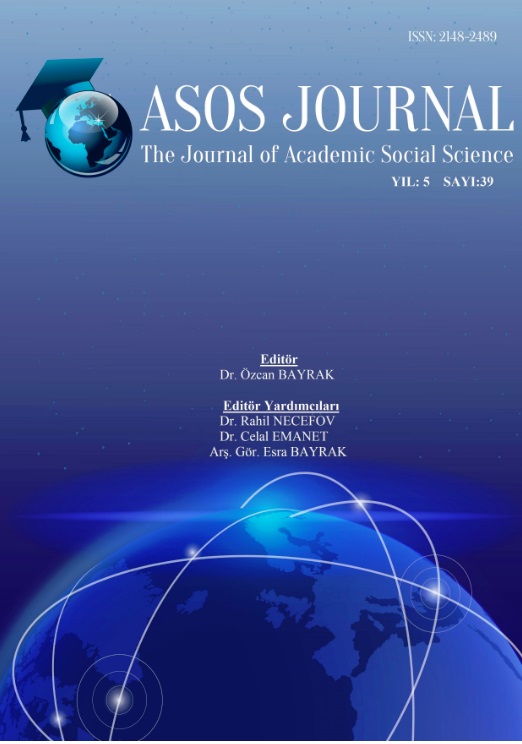XVIII. YÜZYILIN SONLARINDA DONANMA-YI HÜMÂYÛN KALYONLAR MEVÂCİBİNİN KARŞILANMASI ÖRNEĞİNDE OSMANLI MALİ PRATİĞİNDEKİ BASKI VE UZLAŞMA TAVRI
Author :
Abstract
Osmanlı mali sisteminde XVI. yüzyıl sonlarından itibaren özellikle iltizam sisteminin giderek genişlemesinin ve XVII. yüzyılın sonlarında malikâne sisteminin uygulamaya konulmasının çok yönlü etkilerinden biri de, taşradan merkezî hazineye yollanacak yıllık vergilerin, yani belgelerin diliyle mâl-ı mîrînin, zamanında ya da bütünüyle gönderilmesinde yaşanan sıkıntılardır. Bununla karşı karşıya kalan devletin aldığı tedbirler arasında, vergi toplayanlar üzerinde izlenen baskı ve uzlaşma tavrı dikkati çekmektedir. Bu çalışma, merkezî hazineden yapılması gereken ve kalyonlar mevâcibi olarak adlandırılan ödemelere tahsis edilmiş, taşradan bir örnek olarak Malatya sancağından bazı gelirlere ait yıllık vergilerin toplanmasında ve gönderilmesinde yaşananlar ve sancağın yöneticisi Rişvanzâde Ömer Paşa çerçevesinde, bu tavrın mahiyetini izah edebilmeye odaklanmaktadır.
Keywords
Abstract
One of the versatile effects of the progressive expansion of the iltizam system beginning from the end of the 16th century and application of the mâlikane system in late 17th century on the Ottoman financial system was the difficulty related to sending annual taxes that will be sent to from provincial units to the central treasure, or mâl-ı mîrî as it is called in the language of the documents on time or in whole. Among the measures that were taken by the state which faced this situation, pressure and conciliation attitude on the tax collectors is remarkable. This study focuses on the events occur while collecting and sending annual taxes of certain incomes from Malatya district as an example of provincial units which are allocated for the payments called kalyonlar mevâcibi that must be made by the central treasure and on explaining the essence of this attitude in the perspective of the ruler of the district, Rişvanzâde Ömer Paşa.





